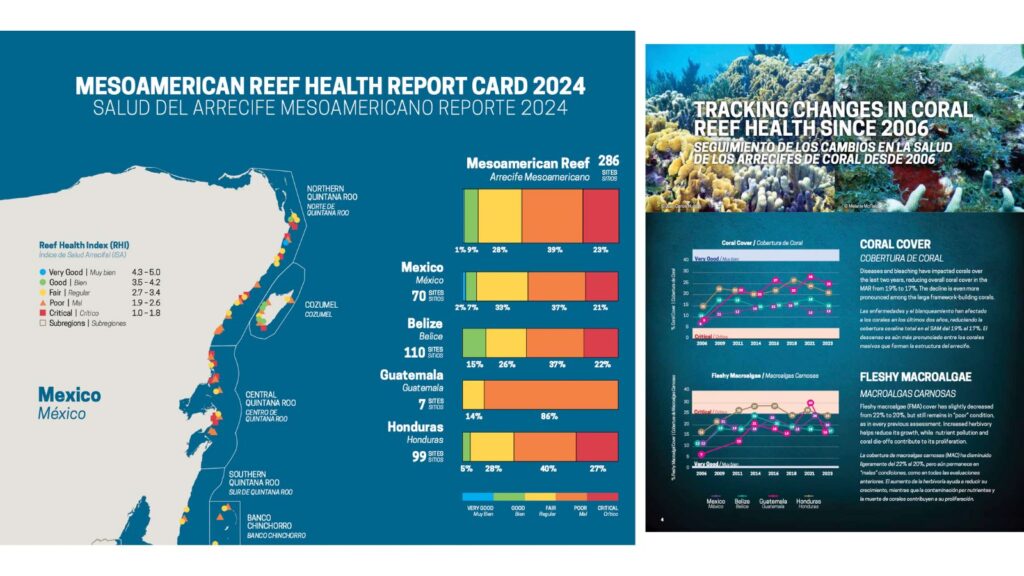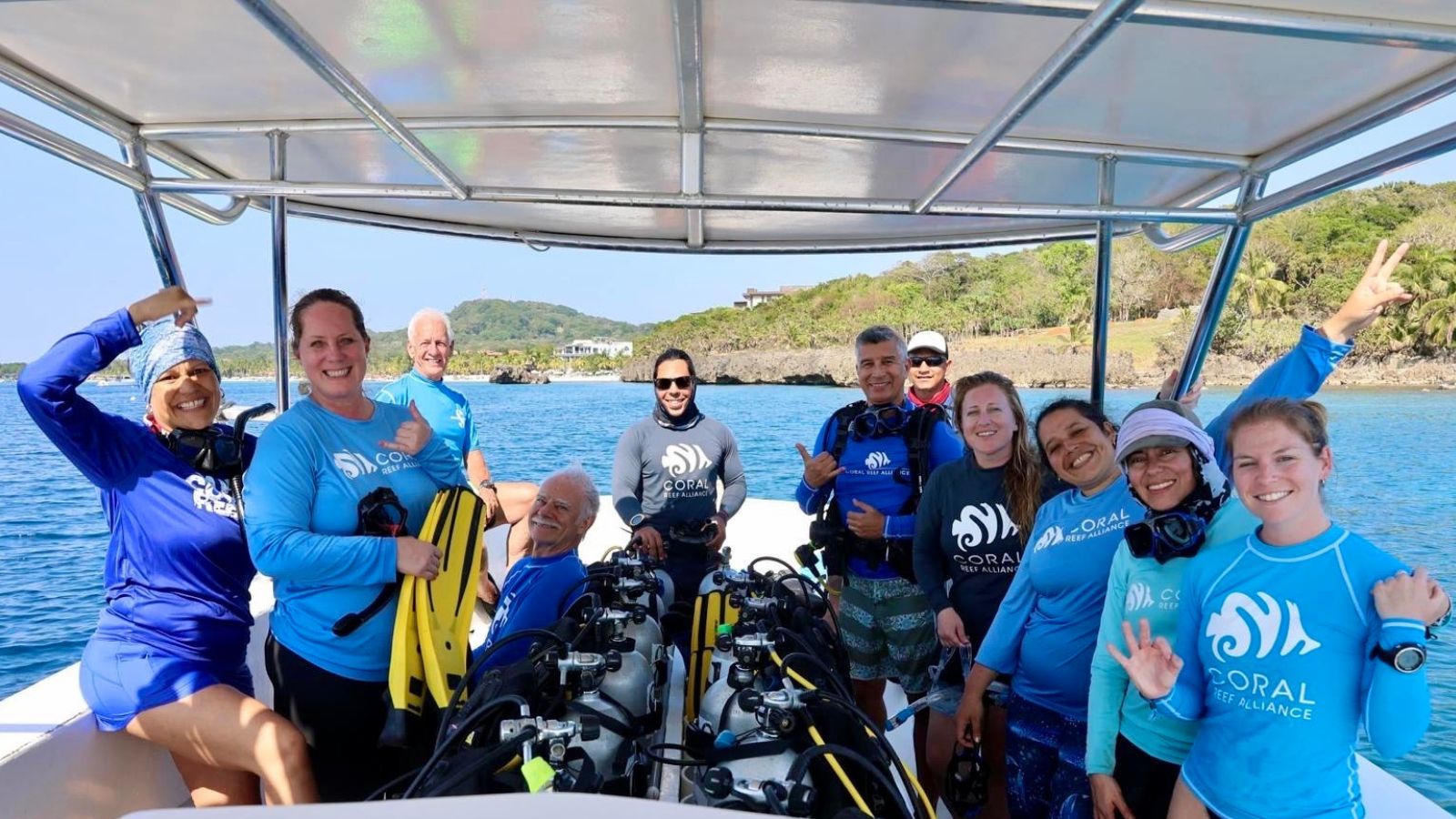In the Mesoamerican Reef (MAR), one of the world’s most diverse and vital reef systems, dedicated local communities, fishers, government agencies, scientists, and nonprofits are achieving measurable improvements in reef health. Although challenges remain, the recent 2024 Healthy Reefs Initiative (HRI) Report Card shows a slight yet encouraging increase in reef health across the region due to an increase in fish biomass likely resulting from improved enforcement. This marks the first reported improvement in five years, thanks largely to the collaborative conservation efforts among coastal communities and organizations like CORAL.
Our data-driven approach is supporting these communities in building lasting resilience for coral reefs and strengthening our understanding of how to manage these ecosystems effectively in the face of climate change.
Tracking Health for Informed Action
Using data collected from almost 300 monitoring sites spanning 1,000 kilometers and four countries, the HRI Report Card serves as a crucial health assessment for reefs in the MAR region. Data is collected using the Atlantic Gulf Rapid Reef Assessment (AGRRA) reef monitoring methodology and assesses coral health based on four key indicators: live coral cover, fleshy macroalgal cover, herbivorous fish biomass, and commercially important fish biomass.
Instead of simply reviewing the data, CORAL uses the findings to inform and adjust our strategies in ways that support and build the capacity of coastal communities. These data help us measure what’s working and what needs further action, allowing us to take targeted steps that enhance reef resilience and community benefits.

Coral Health and Fish Populations on the Rise
The 2024 HRI report highlights improvements in herbivorous fish populations, like parrotfish and surgeonfish, in the Bay Islands of Honduras (except Guanaja), where these crucial species thrive in MPAs protected from overfishing. However, herbivore biomass dipped in coastal Honduras, where they are not yet fully safeguarded. CORAL is collaborating with the Fisheries Directorate and local partners to push for a nationwide legal decree to protect herbivorous fish across all of Honduras. By supporting community-led initiatives, sustainable fishing practices, and improved water quality, we aim to create a resilient reef ecosystem for future report cards.

This connection between community-driven fisheries management and ecological resilience is at the core of CORAL’s approach.
See Also: Herbivorous Fish Article >
Using Data to Drive Practical Solutions
CORAL uses the findings from the HRI Report Card to validate our current strategies and refine and adapt our methods alongside our community partners.
With each report, we can track shifts in reef health, fish populations, and water quality, giving local leaders and fishers a clearer picture of the outcomes of their efforts. This insight allows us to support communities in real time, helping them implement targeted solutions proven to enhance reef health, such as expanded MPA networks and refined water treatment projects under our Clean Water for Reefs initiative.
For example, in 2024, Coxen Hole saw a dramatic increase in wastewater treatment investment and will continue to see more in 2025. This is desperately needed after seeing the impacts of untreated/poorly treated wastewater on the area’s beloved reef, Cordelia Banks, which was unable to recover from a devastating bleaching event. The severe mortality of this magnificent reef occurred just after the data collection period ended for this report card.
Support our Coxen Hole clean water initiative here >

The recent data underscore the impact of collaborative action and reinforce the importance of sustained community engagement and data transparency. As our understanding of these ecosystems grows, we can offer increasingly precise and effective tools to local organizations, amplifying their capacity to maintain resilient reef ecosystems.
Shaping a Resilient Future Together
The HRI Report Card highlights the strength of collaborative conservation and informed action. By pairing community-driven MPA management with conservation science, we are creating a future where reefs and coastal communities can thrive together. The road to reef resilience is challenging, but each bit of data shows us the way forward, with communities and organizations like CORAL united in purpose and action.

With our shared dedication and a commitment to adaptive, community-led strategies, the MAR is on a promising path towards sustained reef health, biodiversity, and resilience. This year’s report encourages us all to continue strengthening these partnerships, knowing that together, we can create a future where coral reefs and the communities that depend on them can thrive side by side.

